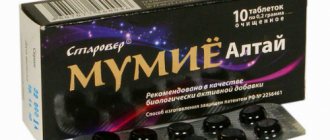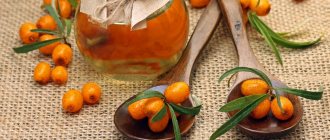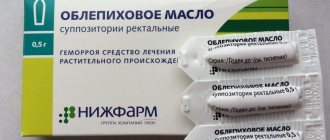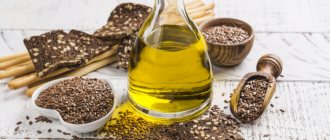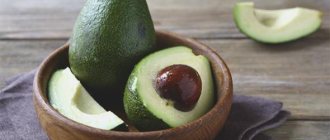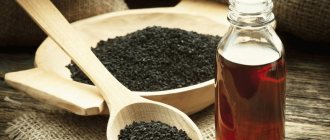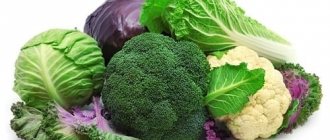Sea buckthorn is a plant grown in gardens to produce bright orange berries. The fruits are collected and eaten. It is known that in European countries the tree is planted for decorative purposes. The berries of cultivated and wild sea buckthorn are used as raw materials for the preparation of jams, preserves, tinctures and marmalade. The fruits are well preserved when frozen.
Mentions of sea buckthorn oil are found among the ancient Greeks and Tibetan healers. In Ancient Rome, sea buckthorn branches, berries and leaves were used to treat open injuries. In Russia, sea buckthorn was served at the royal table. Villagers in coastal villages and sailors took sea buckthorn to combat vitamin deficiency and bleeding gums.
The concentrate from berries and seeds is obtained by squeezing. Sea buckthorn fruits contain more oil than seeds. The composition of the liquid from the berries is more saturated. The color of the seed pomace is not as bright orange, and it lacks carotenoids.
Residents of ancient Bulgaria treated wounds and mucous membranes with sea buckthorn oil; written evidence was found. The creator of written Slavic speech, Kirill, mentions butter in his travel writings. In Russian stoves, oil was prepared from sea buckthorn berries and seeds by Ermak's followers.
What are the benefits of sea buckthorn oil?
The healing properties of sea buckthorn oil have been proven by scientific research, so it is prescribed as part of complex therapy for various diseases. It is recommended for use if there are diseases of the digestive tract, liver, pancreas, eyes, epidermis, and oral cavity. Sea buckthorn is also used in cooking and cosmetology.
Sea buckthorn berries, from which oil is made, contain many beneficial substances that affect the digestive, immune, and cardiovascular systems. Berries contain up to 4.5% carotenoids, 4.4–9% fatty oil, 2.8% organic acids, 0.79% pectin. 100 g of berries contain 505–1170 mg of triterpene acids, which prevent heart pain and arrhythmia, restore blood circulation, and help with insomnia, atherosclerosis, and shortness of breath.
The berry is also rich in B-sitoserine, which has an anti-sclerotic effect. It also contains serotonin, which has antitumor properties. Choline increases blood pressure, prevents the development of fatty liver and atherosclerosis, as it reduces the amount of bad cholesterol in the blood.
Flavonoids have antioxidant properties, so sea buckthorn oil can be used to prevent cancer. Phenolic compounds can inhibit the growth of gram-negative bacteria, including Helicobacter, which provokes the development of gastritis and peptic ulcers.
Sea buckthorn oil contains equal amounts of polyunsaturated fatty acids omega-3 and omega-6
In addition, the plant contains more than 15 microelements (iron, boron, manganese, aluminum, silicon, titanium, magnesium), as well as vitamins C, P, B9, B1, B2, E, K. Sea buckthorn oil contains up to 77% unsaturated fatty acids . Sea buckthorn oil is especially beneficial for humans. 100 grams of product obtained from pulp contains:
- 112–154 mg tocopherols.
- 168–215 mg carotenoids.
- 0.89% phospholipids.
- from 90 mg of saturated and unsaturated fatty acids.
Sea buckthorn oil, obtained from the pulp of the berries, contains slightly more useful substances.
Oil contains a lot of fat molecules - triacylglycerides. It contains linolenic, oleic, palmitic, stearic and other acids. This unique composition of beneficial fatty acids makes the product a medicine that can be prescribed for various pathologies of the digestive tract.
Oil extracted from sea buckthorn fruits contains many organic acids, for example, grape and malic acids, which have a positive effect on the condition of the body as a whole. It has been proven that sea buckthorn oil stimulates reparative processes in the mucous membranes and accelerates the healing of damaged tissues.
And also the product slows down cell aging and has a cytoprotective effect. Thanks to the presence of fat-soluble bioantioxidants, it reduces the effects of free radicals and protects cell membranes from damage.
Due to its composition, sea buckthorn has the following properties:
Treatment of gastritis with honey
- Anti-carcinogenic.
- Antianemic.
- Wound healing.
- Antiseptic.
- General strengthening.
- Antitoxic.
- Anti-inflammatory.
- Enveloping.
- Painkillers.
- Laxative.
Sea buckthorn oil is used in the treatment of peptic ulcers, gastritis, cancer, anemia, dysbacteriosis, poisoning, atherosclerosis and other pathologies. Sea buckthorn oil has regenerating and enveloping properties, so it is widely used for diseases of the digestive system.
The remedy is useful for stomach and duodenal ulcers, gastritis of various origins, dysbacteriosis, chronic diseases and toxic damage to the liver or kidneys, cancer of the esophagus and stomach. Taking sea buckthorn oil internally helps eliminate the inflammatory process, heal ulcers, erosion, and a protective film is formed on the walls of the esophagus and stomach, which prevents the aggressive effects of gastric juice and enzymes, which gives time for the restoration of the mucosa and reduces the severity of pain.
Sea buckthorn oil is good for the stomach
In addition, the substances that make up the oil destroy pathogenic microorganisms, including Helicobacter, which means they treat gastritis and restore the intestinal microflora. Long-term use of sea buckthorn oil can prevent perforation of ulcers, accelerate tissue regeneration and relieve inflammation of the mucous membranes. After use, the severity of the pain syndrome decreases.
Effect of sea buckthorn on the digestive system
The properties due to such a rich content of valuable substances in sea buckthorn allow it to be used as a means of helping:
- accelerate the regeneration of mucous membranes;
- reduce inflammation;
- relieve epigastric pain;
- prevent the negative impact of bacteria on the stomach;
- strengthen blood vessels and increase blood circulation;
- fight constipation;
- improve well-being.
Sea buckthorn oil improves the condition of all organs involved in the digestive process
Sea buckthorn oil for stomach ulcers allows you to protect the damaged mucous membrane from the action of hydrochloric acid, gently enveloping the surface and accelerating tissue regeneration.
How to take the product
It is recommended to drink one teaspoon of sea buckthorn oil three times a day 30 minutes before meals. The product has a bitter taste and may cause burning and discomfort, which is considered normal and does not require discontinuation of use.
If the acidity of gastric juice is increased, then the frequency of administration is reduced to twice a day. You need to drink the product half an hour before breakfast and dinner. The duration of treatment is about a month. To make the therapy more effective, it is recommended to drink the oil with still mineral alkaline water.
In case of low acidity, the product is taken one teaspoon three times a day for 10 days, and then the dosage is doubled. You need to drink two teaspoons three times a day for another three weeks, then take a break for 4-6 months. For erosive gastritis, you need to drink a teaspoon of oil 40 minutes before meals, twice a day.
In case of exacerbation, the dosage is increased to one tablespoon and the time between taking the oil and eating should be about an hour. Improvement will be noticeable after 2-4 weeks of taking the product. According to indications, the duration of treatment can be increased by another 2 weeks.
For atrophic gastritis, a dessert spoon of oil should be dissolved in a glass of warm milk and drunk on an empty stomach. In severe cases, the dosage of oil can be increased to three tablespoons. For oncological diseases of the esophagus or stomach, take half a teaspoon of oil three times a day, half an hour before meals, throughout radiation therapy and for another three weeks after its completion.
For stomach ulcers, it is recommended to drink sea buckthorn oil on an empty stomach half an hour before breakfast in an amount of 120–220 ml. The product will help get rid of abdominal pain. To avoid heartburn, it is recommended to mix 50 ml of oil with a glass of water and half a teaspoon of soda.
You need to continue treating the ulcer with oil for 1–2 months, then take a break. You can take sea buckthorn both during remission and during exacerbation. Your doctor will tell you how to take sea buckthorn oil correctly for a certain pathology and whether this can be done in a particular case.
When not to take the drug
There are contraindications to using the medicine. Treatment with sea buckthorn oil extract is prohibited if:
- hepatitis;
- inflammation of the gall bladder (can provoke the passage of stones);
- diarrhea;
- pancreatitis.
- allergies to sea buckthorn;
- tendency to edema;
- presence of tumors.
Persons suffering from diabetes should drink the product with caution. Self-medication is strictly prohibited: it can lead to a noticeable deterioration in health.
When used correctly, sea buckthorn oil has almost no side effects. Sometimes diarrhea and belching may occur.
Capsules with sea buckthorn oil
Sea buckthorn oil can be purchased at a pharmacy. It is available in liquid form and capsules. One capsule contains 200 or 300 mg of oil, there are 100 pieces in a package. The instructions for use contain the following indications:
- Radiation injuries.
- Stomach or duodenal ulcer.
- Gastritis with high acidity.
- Recovery after operations on the gastrointestinal tract (gastrointestinal tract).
- Chronic inflammation of the large intestine.
- Nonspecific ulcerative colitis.
You need to take capsules 2-3 times a day, 1.6 ml of oil at a time (this is 8 capsules or 5 ml). Duration of therapy is 10–14 days. If sea buckthorn oil is drunk for preventive purposes, then you need to take 0.8 g of the product once a day.
When used, side effects may occur, such as bitterness in the mouth, allergic reactions, diarrhea
Sea buckthorn oil in capsules has a number of advantages:
- Nutrients last longer because they do not oxidize.
- The substances have greater bioavailability.
- The drug in capsules does not have a pronounced odor or aroma.
- Ease of storage, use and dosing.
Preparation of sea buckthorn oil
There are 2 methods for preparing sea buckthorn oil:
- Ripe berries are squeezed out, placed in a glass container, and placed in the refrigerator. After a fat film has formed on the surface, it must be collected in another container. This can be done with a spoon or syringe. The resulting product has high medicinal value and is considered to be most useful.
- Juice is squeezed out of crushed berries (using a meat grinder or sieve). The resulting cake is poured with sunflower oil and left for a week in the refrigerator. The solution is filtered before use.
Based on the oil, you can prepare an elixir, which additionally contains honey, aloe juice, and vinylin. All components are taken in 100 g quantities and mixed. The product is taken six times, 1 tsp. 14 days. The combination of healing components allows you to improve the condition of the digestive organs in the shortest possible time.
The benefits of sea buckthorn oil will be discussed in the video:
Contraindications for use
Sea buckthorn oil is contraindicated for patients with individual intolerance. And you also cannot use it during exacerbation of the inflammatory process in the liver, gall bladder or pancreas (cholecystitis, pancreatitis, cholangitis, hepatitis). The berry will be harmful if your blood pressure is low or gallstone disease is diagnosed.
Sea buckthorn leads to increased bile secretion, which is beneficial for the digestive system, but if there are stones in the gallbladder, their movement can lead to blockage of the duct and the occurrence of biliary colic. Therefore, before long-term use of the drug, it is worth finding out whether there are stones in the gall bladder. Since sea buckthorn oil has a laxative effect, people prone to diarrhea should not drink it.
Relative contraindications are age under 12 years, pregnancy and lactation.
Contraindications and side effects
Sea buckthorn oil therapy does not always give the desired result, so you should not choose it as the only possible option for pain relief. Before using an herbal remedy, be sure to consult your doctor. The doctor will determine contraindications and select the dosage and duration of therapy that suits you.
The main restrictions for taking medicines based on sea buckthorn include:
- cholecystitis, cholangitis, cholelithiasis;
- pancreatitis in the acute stage;
- hepatitis;
- diarrhea;
- individual intolerance;
- pregnancy, breastfeeding period;
- children under 12 years of age.
When treating diseases of the intestines or stomach, be sure to evaluate your health - whether it is worsening or improving. For example, with gallbladder diseases, severe nausea and a clear laxative effect are often observed. Sometimes there is a burning sensation and pain in the abdominal area.
Another side effect is skin rash. It is localized in various parts of the body, and in some cases itching develops. If pain, rash, or urticaria suddenly appear, stop treatment.
How to cook it yourself
A homemade remedy is perfect for treating the gastrointestinal tract. To prepare the oil, you will need ripe sea buckthorn berries with intact skin. It is advisable to collect them in winter; it is in January - February that they contain the most carotenoids. You can use dried or frozen fruits.
The berries need to be dried and squeezed using a mortar or juicer. The resulting liquid should sit for some time. A thick yellow film will appear on the surface of the juice; this is sea buckthorn oil. It must be removed and stored in a glass container in the refrigerator. If the fruits have been thoroughly washed, the product can be stored in the cold for up to a month.
Oil can also be prepared from cake. The seeds and peels that remain after squeezing the juice are laid out on a paper towel. They are dried in the wind or in the oven (you need to make sure that they are not exposed to direct sunlight and mold does not grow), poured into a glass jar and filled with vegetable oil. The mixture is left for a week in a dark place. Afterwards the oil is filtered.
Is it possible to make this oil at home?
The finished medicine is sold at the pharmacy. However, there are many recipes with which you can prepare it yourself at home. And this is absolutely easy to do, you just need to carefully follow all the instructions. In terms of its composition and action, homemade oil is practically no different from pharmacy oil. Here are the 2 most common cooking recipes:
- The first recipe: juice is squeezed out of ripe berries, poured into a vessel and placed in a cold place. After a certain time, a film of fat appears on the surface of the juice. It must be collected very carefully. Sometimes a regular syringe is used for collection. The quality of such oil is usually very good.
- The second recipe is somewhat simpler, but the medicine will not be of such high quality. The berries are crushed using a meat grinder (you can use a blender for this). Then the juice is squeezed out, and the cake is filled with sunflower or other vegetable oil. This recipe requires that the medicine be infused in a dark and cool place for at least 1 week. Then the oil is filtered through cheesecloth. It is best to store it in the refrigerator to prevent it from going rancid.
All recipes for preparing the medicine yield an excellent product. To prepare the drug, you need to take only ripe sea buckthorn and a mixture of high-quality oils.
Important! To prepare the preparation, the berries must also be intact. They must be collected very carefully, because damaged northern pineapple fruits lose their medicinal properties and are unsuitable for consumption.
Sea buckthorn oil is the most valuable natural medicine. Its use is justified not only for lesions of the digestive tract, but also for various chronic pathologies. It must be taken very carefully and always pay attention to certain contraindications. And if your health worsens, you should consult a doctor.
Sea buckthorn is a unique plant, the healing properties of which people knew many centuries ago. Even then they prepared juices, infusions, and ointments from the fruits. Currently, this berry is widely used for medical purposes to treat the digestive, reproductive, and nervous systems. It has been proven that regular use of sea buckthorn oil improves memory, restores skin elasticity, and strengthens the immune system.
Sea buckthorn oil is a useful remedy for stomach ulcers.
The juice, which is an oily orange liquid, contains not only entire groups of vitamins and minerals, but also amino acids that are so necessary for the body. Gastroenterologists, along with traditional treatment, often prescribe patients to use sea buckthorn oil for stomach ulcers.
How to choose oil
In order for a product to have the most positive effect, it must be selected taking into account certain nuances. When choosing oil, you should pay attention to the carotenoid content in it. The benefit will be maximum if the amount of biologically active substances is more than 180 mg. The most useful product, which is obtained by cold pressing. It is this method of extraction that allows you to preserve useful substances.
It is believed that the most healing sea buckthorn is grown in Altai
Vegetable oil deteriorates quite quickly when exposed to oxygen. Therefore, it must be stored in a closed container and used within two months. If the oil sits longer, it not only loses its beneficial properties, but can also cause harm to the body instead of benefit.
Sea buckthorn oil has a positive effect on the body as a whole. It promotes wound healing, has an immunomodulatory, anti-inflammatory and antiseptic effect, and can reduce the severity of pain during inflammatory processes in the stomach, since it envelops the mucous membrane and protects against the aggressive effects of enzymes and acid.
Your doctor will advise you on the correct use of the medicine for a certain pathology; for preventive purposes, it is recommended to drink a teaspoon of sea buckthorn oil half an hour before breakfast for 2–4 weeks. It is not advisable to interrupt the therapeutic course, since it is important to protect the mucous membrane throughout the entire recovery period. Between courses you need to take a fairly long break of 4–6 months.
